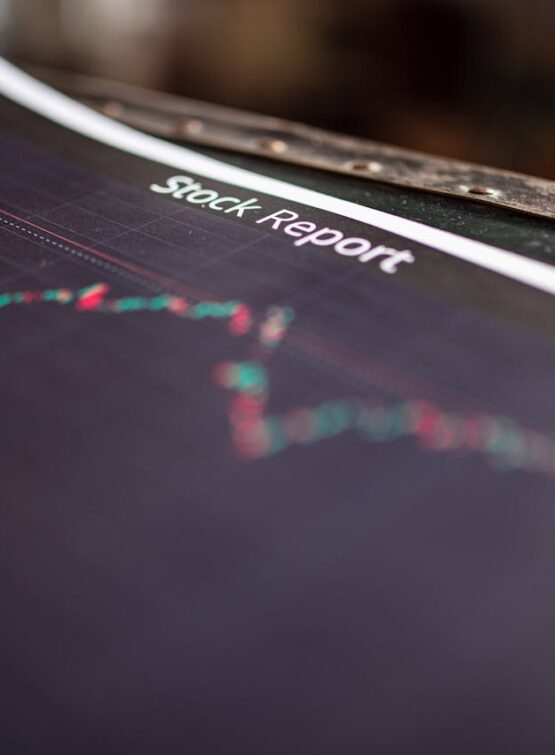Everyone wants the thrill of that Initial Public Offering (IPO) allotment. It is almost impossible for every new investor to resist an IPO. The news of stock prices skyrocketing within a day or week after listing on stock exchanges sounds astounding. Often we come across the IPOs listing at a premium of 100% or more in some cases.
Well, hold onto the excitement, buddies! I am going to burst that IPO bubble with cold and hard facts. In fact, IPOs are a recipe for financial disasters for many retail investors.
What is an IPO or Initial Public Offering?
Firstly, we will discuss a few things about IPO or Initial Public Offering. It is the process of a private company raising capital by selling its shares for the first time. The first issue of shares or an IPO comes under the Primary Market. This is where the price discovery of the company shares takes place through a process called book building. The Investment banks measure factors like investor demand, market conditions, company’s valuation and decide the price range of shares.
The investors must have a Demat account for an IPO allotment. I am not discussing how to apply for an IPO, but here’s an article on the application for an IPO in Zerodha.
The shares of a company after IPO are listed on stock exchanges or Secondary markets. Know more about Primary and Secondary Markets.
What is the reason for all the excitement and anticipation?
After the listing of shares in the stock markets, the company becomes a public limited. The FOMO (fear of missing out) and media coverage fuels the IPO fever. IPOs can be tempting prospects, promising early access to companies with superlative growth potential. As far as I know, investors put their money in IPOs for a quick 50% to 70% return after their listing on the stock exchanges. About 60% to 70% of all IPOs underperformed the market for the first year after listing in the last ten years.
Here are some reasons why retail should be a bit more cautious investing in IPOs
1. No Historical Data:
Retail investors often face challenges when it comes to investing in IPOs. They don’t have access to historical performance data. Unlike established companies, which provide a track record of their financial performance, IPOs lack a comprehensive history for investors to analyze. This absence of data makes it challenging for investors to assess the company’s stability, profitability, and long-term prospects.
2. Speculative Nature and Volatility
IPO stocks are notorious for their volatile prices during the initial days of trading. People who invest in these stocks might get carried away by the excitement surrounding a new IPO leading to inflated stock prices driven by speculation instead of the actual value. The price fluctuations during this period are unpredictable, and they can expose investors to significant risks, particularly if they give in to FOMO (Fear of Missing Out).
3. Limited Information
When companies decide to go public, they must provide a prospectus that outlines the important details about their operations, management, and potential risks. However, these documents may not always contain a complete and transparent picture. As a result, retail investors may not have access to all the crucial information they need to make informed investment decisions.
4. Insiders Selling
In most Initial Public Offerings (IPOs), after the company gets listed on the stock exchange, people who are part of the company, such as founders, early investors, and employees, are not permitted to sell their shares during the Lockin period. After the Lock-in Period, promoters and others may start selling their shares in the stock market. This sudden increase in the number of shares available for trading can decrease the value of existing shares and cause short-term price drops. Retail investors are susceptible to abrupt and unexpected losses in these situations.
5. Market Conditions
Market conditions greatly influence the success of an initial public offering (IPO). Uncertainties in the economy, geopolitical events, or industry-specific challenges impact the performance of newly listed companies. Retail investors, who are not in control of external factors, may find themselves at a disadvantage.
6. Underperformance after Listing
Based on studies, IPO stocks tend to perform worse than the overall market in the long run. The initial hype and high prices frequently give way to a more accurate evaluation of the company’s worth, resulting in adjustments. This underperformance may reduce the profits of individual investors who joined the market during the excitement of the IPO.
It is not necessary for a stock that has listed at 50% gains on the first day to continue moving up for the next coming months.
Poor Performance of Some famous IPO listings:
1. Glenmark Life Sciences (GLS), a subsidiary of Glenmark Pharmaceuticals Ltd, was issued for ₹720 per share and listed at around ₹750 in August 2021. It fell by almost 50% in the next year.
2. Zomato shares were issued for ₹76 and listed at ₹116 in July 2021 for a gain of 52%. In the next 12 months, the share price fell to around ₹40, a fall of 47% from the issued price.
3. Paytm was issued for ₹2150 and listed at ₹1950 in November 2021. After one year, its shares were trading at ₹440, down by 79% from the issue price.
4. LIC or Life Insurance Corporation of India was issued for ₹949, listed at ₹870. LIC shares were trading at ₹540 just ten months after listing, down 43% from the issue price.
5. Nykka was issued for around ₹1125 per share in November 2021, listed at ₹2000 for a gain of 75% on the first day. However, the shares tanked by 65% from the listing price in the next 15 months.
Conclusion:
IPOs can provide investors with high returns soon after they are listed, but these gains may not last in the long term. However, over the last three years, IPOs have given investors decent returns, with the average listing day returns being 10.83%, 31.19%, and 28.43% in 2021, 2022, and 2023 respectively. This impressive performance is likely due to an increase in investors’ confidence during this period. Nevertheless, in the long run, IPOs tend to underperform the overall market the majority of the time.
Instead of not chasing only hot IPOs, retail investors should focus on building a diversified portfolio of blue chip stocks with businesses and reasonable valuations. Investors should not consider IPOs as serious investment in portfolios and allocate only a small percentage to IPOs and book profits as early as possible.
Some Useful Links:
LIC’s dismal stock price performance after its IPO in 2021
Paytm hitting the lowest price
Nykaa shares continues to fall
CarTrade Tech’s underperformance
Disclaimer:
I provide the information and my views on the website only to educate new investors and stock market enthusiasts on equity and other market investments. Please consult a SEBI registered financial advisor before making any investments in the stock or commodity markets. In case of any queries, you can contact me on Contact Form or email: admin@valueinvestingonline.in.




